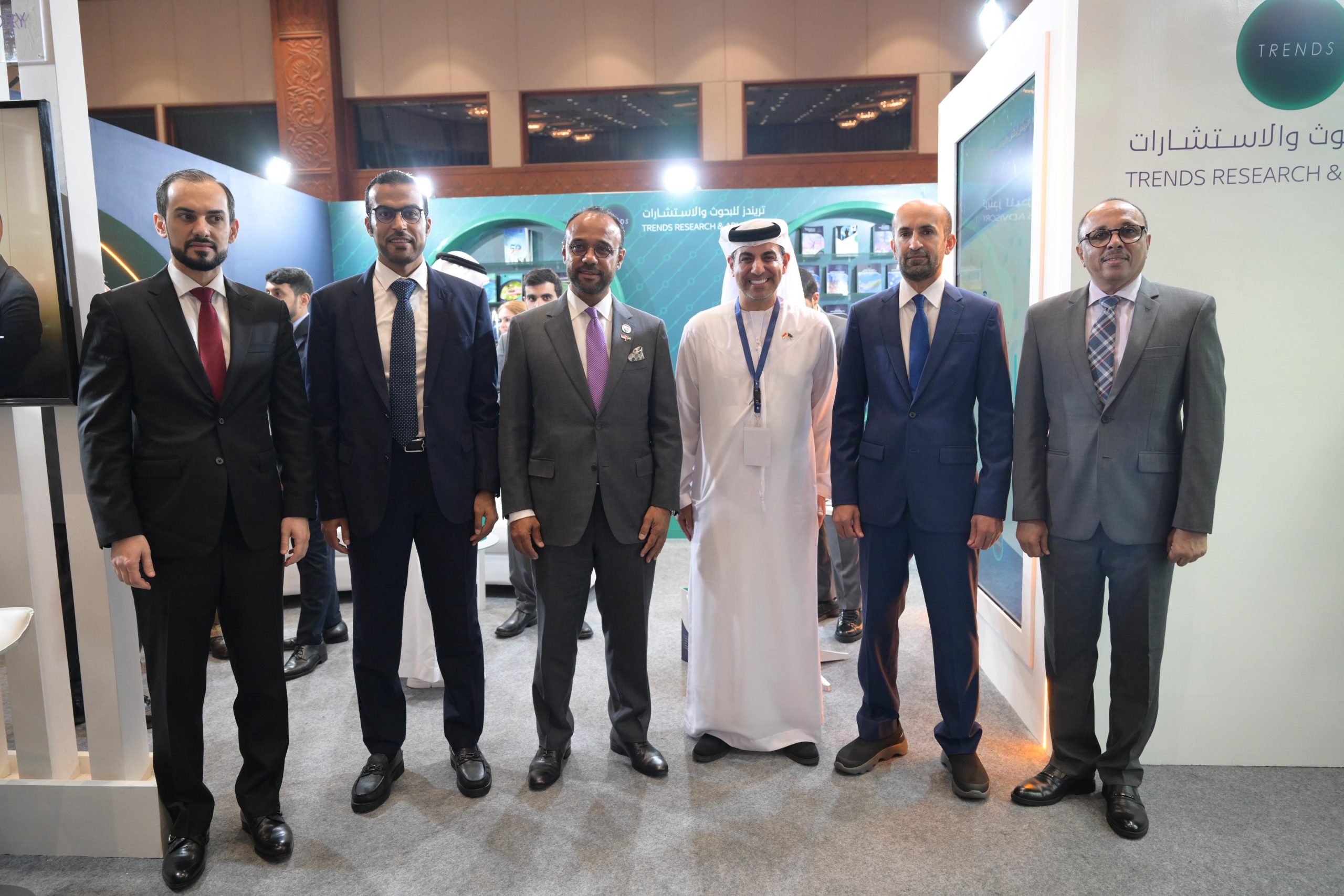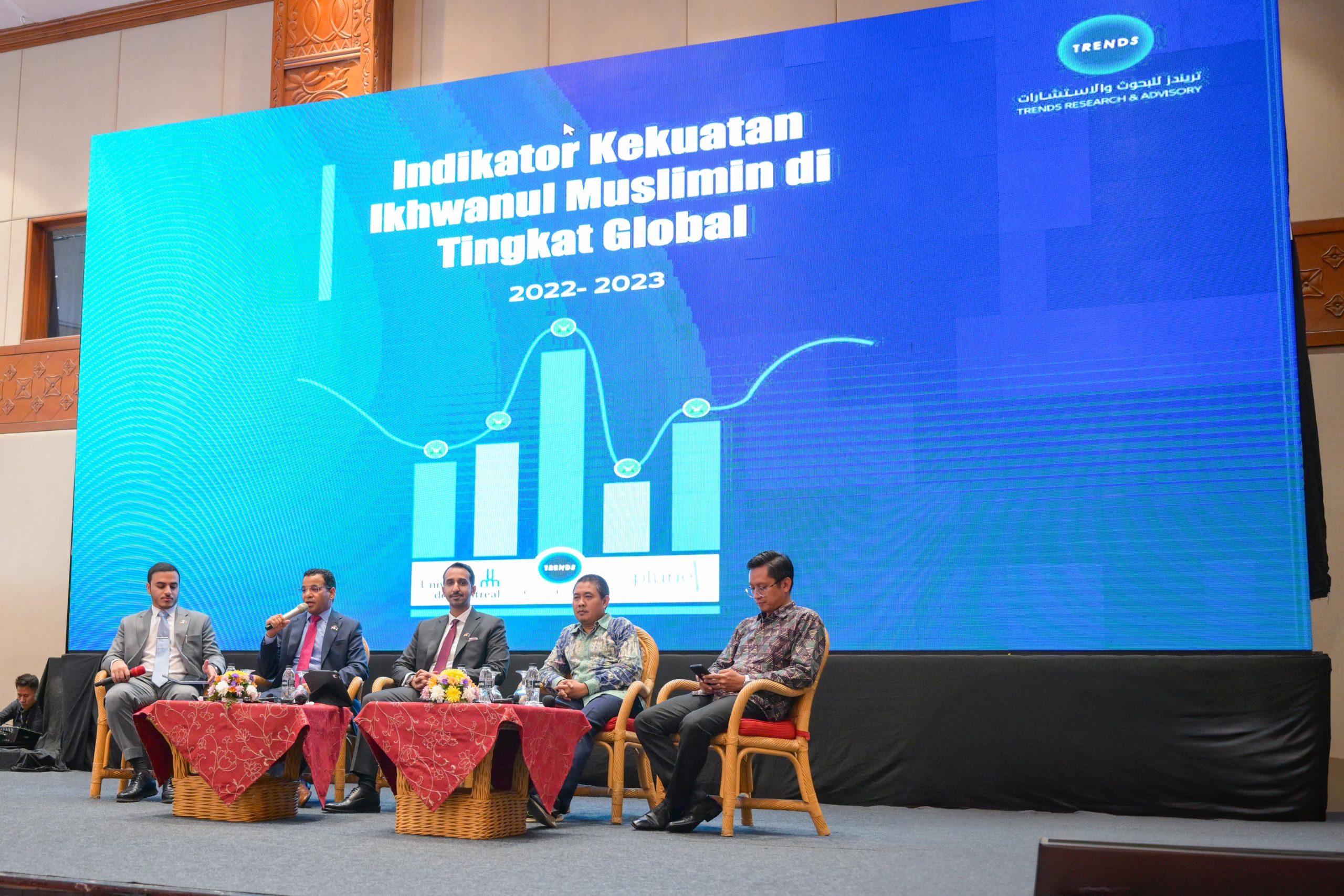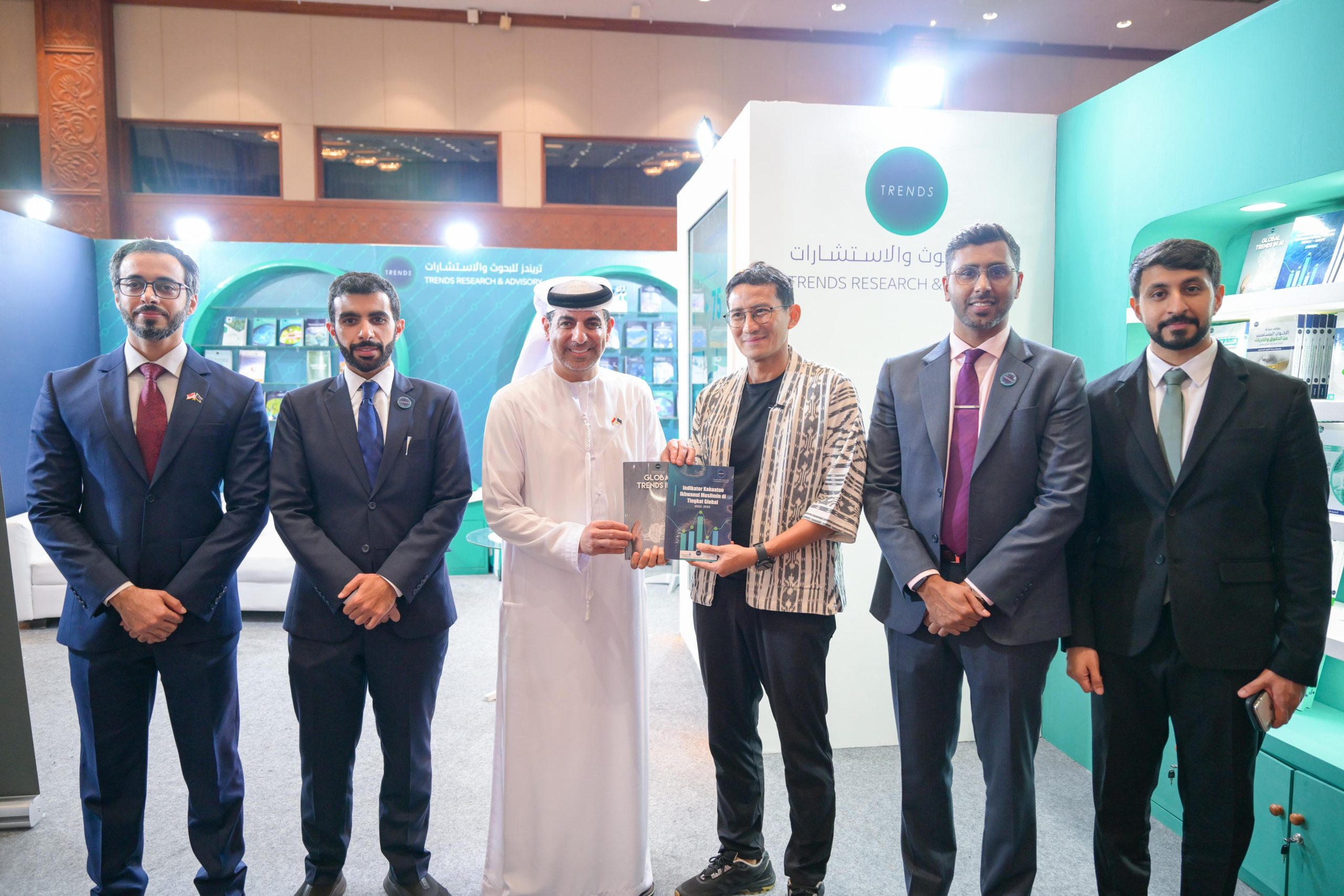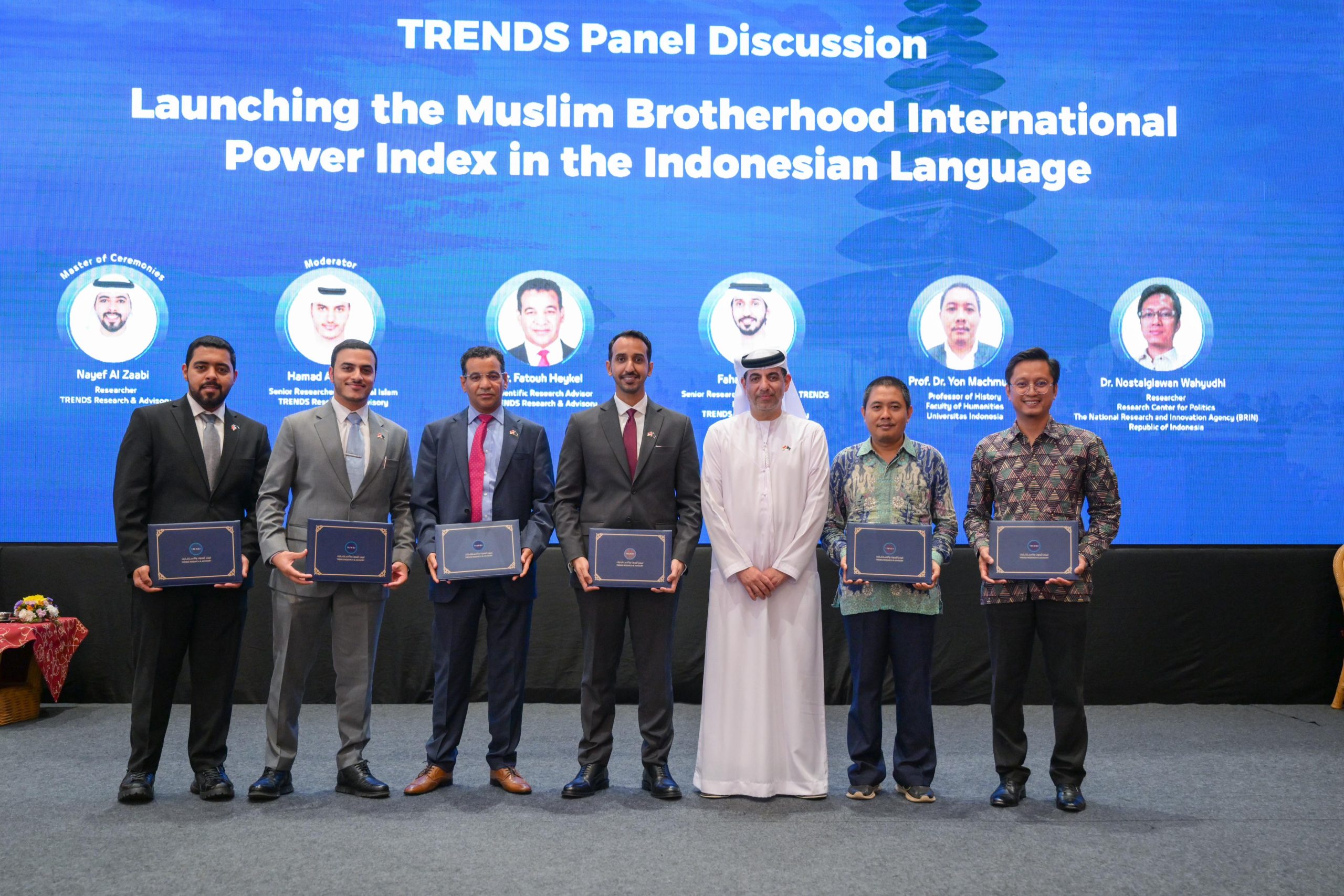As part of its participation as the primary sponsor of the Indonesia International Book Fair 2024, TRENDS Research and Advisory launched the Indonesian edition of its Muslim Brotherhood International Power Index (MBIPI) in the presence of H.E. Sandiaga Uno, Indonesia’s Minister of Tourism and Creative Economy. The MBIPI measures the Muslim Brotherhood’s influence across different geographic regions at various levels.
Following the launch, which ambassadors of the UAE, Bahrain, and Jordan attended, a panel discussion was held at the main stage of the Jakarta Convention Center to discuss the MBIPI results. The director of the TRENDS Jakarta office and other scholars and researchers contributed.
The panel was moderated by Hamad Al-Hosani, Senior Researcher in Political Islam at TRENDS, who outlined the MBIPI’s five leading indicators: international organizational influence, political influence, economic influence, media influence, and societal influence.

Deconstructing the Group’s Ideology
Dr. Fatouh Haikal, Scientific Research Advisor at TRENDS, highlighted several factors that have weakened the Muslim Brotherhood’s influence in recent years, including its failure in governance, internal fractures, and increased international scrutiny of its destabilizing activities.
He pointed out that historically, the Muslim Brotherhood enters a period of dormancy when under pressure, only to resurface when it senses an opportunity to further its agenda.
Dr. Haikal also noted that Asia is one of the regions where the Muslim Brotherhood remains active, exploiting religious sentiments to advance its ideology. He emphasized the need for continuous monitoring and intellectual deconstruction of the group’s ideology to counter societal threats. This is the aim of the MBIPI.

Confronting Ideology with Intellectual Analysis
Fahad Al-Mahri, Senior Researcher and Head of TRENDS Dubai Sector reiterated that the MBIPI reflects TRENDS’ mission of confronting extremist ideologies with intellectual analysis. He explained that the Indonesian edition of the MBIPI is part of TRENDS’ broader effort to raise international awareness about the dangers the Muslim Brotherhood poses and to enhance global cooperation against extremism.
He also referred to a related index developed by TRENDS. This index uses data from social media to gauge public perception of the Muslim Brotherhood globally in 2023, providing comprehensive qualitative and quantitative insights about its threats and opportunities to counter them.
Al-Mahri noted that TRENDS places particular emphasis on its Political Islam Studies Program, given the danger posed by the Muslim Brotherhood and its destructive ideology. As a result, TRENDS has become a leading global authority in this field.
He highlighted the center’s publication of a dedicated encyclopedia on the Muslim Brotherhood, comprising 35 volumes, 12 of which have already been published and translated into 15 languages. In addition, ongoing studies are being continuously released, covering various dimensions of this topic.

Rejecting Extremism
In a presentation on the threats of Islamist groups in Southeast Asia and strategies for confronting them, Dr. Yon Machmudi, Professor in History at the Faculty of Humanities, University of Indonesia, criticized political Islam for its exclusionary nature and power-driven agenda.
He praised Indonesia’s emphasis on moderation and tolerance, strengthening national unity and rejecting extremism.

The Indonesian Experience
Nostalgiawan Wahyudi, the National Research and Innovation Agency, Indonesia, shared that Indonesian society rejects the Muslim Brotherhood’s ideology and adheres to moderate Islam, fostering a more tolerant and flexible religious environment.
He commended TRENDS for its efforts in exposing the reality of the Brotherhood through the MBIPI and the Encyclopedia of the Muslim Brotherhood. Nayef Al-Zaabi, TRENDS’s Distribution and Exhibitions Specialist, emceed the panel discussion.



